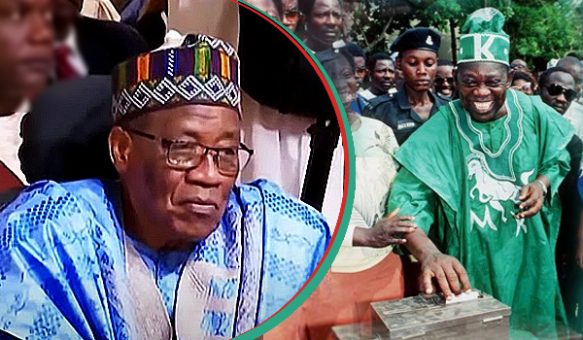
Former military ruler in Nigeria , General Ibrahim Babangida, is facing backlash following his recent admission that the late Chief Moshood Abiola won the June 12, 1993, presidential election. His statement, made during the launch of his memoir A Journey in Service in Abuja, has been met with skepticism and criticism from key figures in the pro-democracy movement.
Several prominent members of the National Democratic Coalition (NADECO), including Oba Olu Falae, Dr. Amos Akingba, Olawale Oshun, and former Foreign Affairs Minister Prof. Bolaji Akinyemi, dismissed Babangida’s admission as belated and revisionist. Akinyemi stressed that leaders must always take responsibility for their actions, while Akingba accused Babangida of having “messed up Nigeria” with the annulment.
Hafsat Abiola-Costello, daughter of the late MKO Abiola, said Babangida’s statement contained nothing new, while her brother, AbdulMumini Abiola, acknowledged that the former head of state at least expressed remorse for his decision. Meanwhile, Gumsu Sani Abacha, daughter of the late General Sani Abacha, reacted cryptically on social media, implying divine justice with the words: “God does not sleep.”
Babangida, in his remarks, admitted that annulling the election was a grave mistake but claimed it was done in the “supreme national interest.” His claim that Abacha had planned to violently overthrow his administration and harbored hatred for Abiola further stirred controversy.
Falae, who served as Secretary to the Federal Government under Babangida, reiterated that NADECO opposed the annulment 32 years ago, leading to arrests, detentions, and exile for many activists. Oshun emphasized that no leader can escape the demand for accountability, warning today’s leaders to learn from history.
Reacting to Babangida’s admission, former NBA President Olisa Agbakoba (SAN) said he was uninterested in any apology, noting that the damage is now part of Nigeria’s history. Businessman Atedo Peterside similarly dismissed the statement, questioning why Nigerians should applaud Babangida for admitting the truth after three decades.
Despite the backlash, AbdulMumini Abiola described the former ruler’s admission as “healing,” stating that it affirms his father’s victory and acknowledges the pain the annulment caused the Abiola family and the nation. He reflected on how the election’s aftermath turned him into an orphan and caused a national brain drain as many Nigerians fled the country.
The debate over Babangida’s role in Nigeria’s democratic struggles continues, with many insisting that mere words cannot erase the injustice of June 12, 1993.






